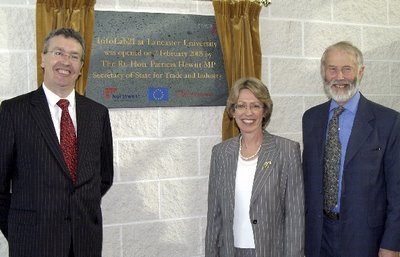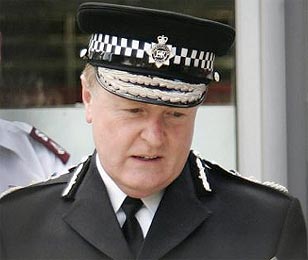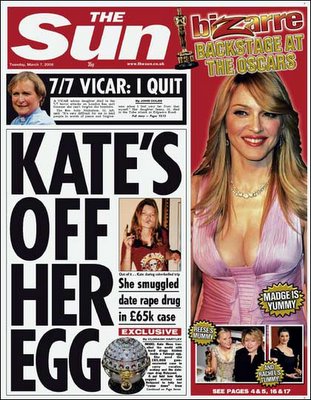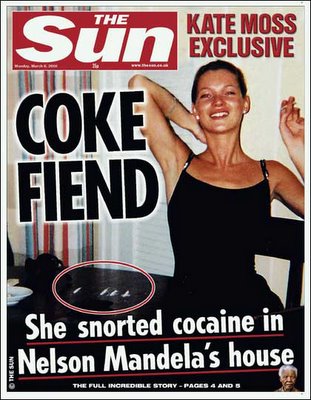John Profumo: The sad case of being born in the wrong era.
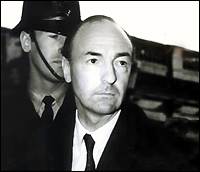
The death yesterday of John Profumo has elicited a huge amount of prose around scandals involving politicians (and now I'm going to add to it. Hurr). Probably the original real scandal involving a high-ranking cabinet minister, the Profumo case had it all: spies, call girls, suicide and the eventual fall of a government. Rather than focus on the now arcane events of the 60s, it's perhaps better to compare Profumo's tragedy with latter-day scandals.
The most obvious recent sex scandal (apart from Mark Oaten's, which I will come to (stop sniggering)) is that of dear old Dave Blunkett. A man who had married and divorced, he was sucked in by the charisma and personality of Kimberley Quinn, former publisher of the Spectator, a right-wing political weekly. Apparently on first meeting her, she wondered aloud what it was like making love to a blind man. What followed was to become an infatuation for Blunkett, but just seemingly another bit on the side for Quinn, who was also having sexual relationships with her husband, Stephen Quinn, the Guardian sketch writer/wine columnist for the Spectator, Simon Hoggart, and with an unknown man who fathered her most recent child. Other relationships may well have also taken place. Unlike Profumo, in 2004 when the relationship became common knowledge, Blunkett was not being called to resign, despite having an affair with a married woman. Indeed, what was once fodder for all the newspapers had become something of a pursuit for the tabloids, with both the Guardian and Independent not covering the story, saying that as it didn't affect Blunkett's work as Home Secretary that it wasn't in the public interest.
That changed in late 2004 when allegations arose of impropriety involving Quinn's nanny's visa, and that it had been fast-tracked. Denied by Blunkett, an investigation uncovered an email related to the visa which had among its contents "no special favours, .. but a bit quicker". Blunkett continued to deny any wrong-doing, but he resigned and the report found that it was likely even if he hadn't been involved in speeding up the process, then the fact it was related to him may well have led to it being processed quicker. At the same time Blunkett found himself in a battle with Quinn over her child, the relationship having ended. It was soon disclosed the Blunkett was indeed the father. Quinn at the time was pregnant again, although this child turned out to be neither Blunkett's nor her husband's. (Nor was it Simon Hoggart's, for the record.)
Blunkett, with Blair still claiming he had done no wrong, was swiftly returned as Works and Pensions minister following the Labour election victory in May. Yet he remained hounded by the press, and was likely the victim of a honeypot trap plot by the News of the World and Mail on Sunday, involving Max Clifford. What then emerged was his dodgy dealings with a company called DNA Bioscience, which he had briefly joined the board of and bought shares in. Claiming this was to help offset the court costs from his parental rights battle with Quinn, and that again, despite the company being involved with bidding for government contracts, and having failed to consult the committee for business appointments over his dealings, he said he had forgot and that he was again innocent. He resigned, although whether he was pushed by Blair or simply gave in to the pressure from the press and opposition MPs is not known for certain.
What is all this leading to? Well, Profumo's mistake was to lie to parliament. He more or less denied having a relationship with Christine Keeler, saying there was "no impropriety in their acquaintanceship". He was subsequently exposed with having a 4 month affair with the woman, behind the back of his actor wife Valerie Hobson. He resigned from both the government and parliament, and lived out the rest of his life working for Toynbee Hall, a charitable organisation.
Whether Profumo would have had to resign in the same circumstances today is uncertain. While lying to parliament is still a resignable offence, as it should be, it's uncertain whether the opposition parties or sections of the press would push for it seeing as it regarded a personal and private matter. Compared to Blunkett's travails, with Blair still claiming he has done nothing wrong, despite twice resigning having misled parliament involving government matters and business dealings, Profumo seems positively clean. What is Blunkett up to now? Why, he writes for the Sun as a happily paid up member of Murdoch's minions, and he still resides in his grace and favour home in Belgravia, provided by Mr T. Blair. (Update: Blunkett has now apparently finally moved out.)
Perhaps more comparable then is the even more recent case of Mark Oaten, who never deceived parliament in any way, but who resigned as shadow home affairs spokesman for the Liberal Democrats following the revelation in the News of the World that he had sex with a male prostitute. While it was probably best that he did resign, as it would have been a distraction during the Lib Dem leadership campaign, he has a right to feel aggrieved at a "newspaper" which has become nicknamed the News of the Screws thanks to its dedication to printing the tales of the sex lives of the rich and famous. Profumo also looks like an angel compared to the late Tory politician Alan Clark, who infamously had his way with both a mother and her two daughters, whom he nicknamed in his diaries "the covern". Clark also had a sexual relationship with at least one other women while his wife, referred to throughout his deliriously enjoyable diaries as "darling Janey", forever stuck by him.
What it comes down to then is that John Profumo was sadly born in the wrong era. The 1960s sexual revolution was only just beginning as he resigned, although both the pill and Lady Chatterley obscenity trial had been and gone. Profumo was cut down, and lived out the rest of his life devoted to charity, ashamed of his weakness to temptation. His legacy, as alluded to by the last paragraph in the Guardian obituary, may well be that he voted in 1940 against his own party, a vote which led to the downfall of Chamberlain and the arrival of Churchill as prime minister.
Profumo didn't deserve what happened to him. Perhaps the lesson from his resignation should be that while sexual indiscretion is none of anyone's business other than one's relatives and spouse, political manipulation should still be treated as harshly now as then, an idea that Tessa Jowell and Tony Blair have certainly not ascribed to.
